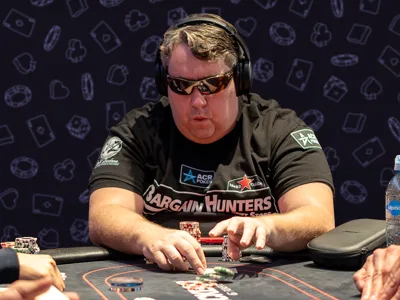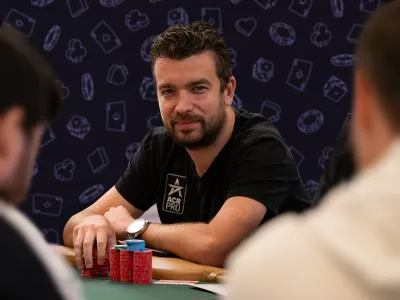A mathematical approach ensures that each rebuy contributes to your chance of reaching the final table Rebuy tournaments offer a unique challenge to poker players because they mix traditional strategy with calculated risk management. Knowing when to rebuy or add on can make the difference between a deep run and an early exit. The key
Category: How to
Maintaining Composure After Defeats in Heads-up Poker
In heads-up poker, emotional control is a crucial edge that keeps you playing at your best Losing in heads-up poker can sting more than any other form of the game. The intensity of one-on-one play amplifies every decision, and when a loss comes, it often feels personal. However, the ability to stay composed after a
Early Stage Survival Tactics in Freezeouts
Steady discipline early often sets the stage for success later Early stages in freezeout tournaments can be tricky, especially since there are no rebuys to fall back on. Every chip holds real value, and one mistake can mean an early exit. To survive and thrive, players must balance caution with opportunity, adjusting their approach based
When to Embrace Risk in Short Deck Hold’em
Balancing various factors helps you time your aggression and achieve consistent profits Short Deck Hold’em rewards players who know when to take calculated risks. Since the deck excludes cards two through five, the game becomes more volatile, and hand values shift dramatically. Hands like flushes are rarer, while straights and sets gain importance. This dynamic
How Emotional Control Improves Your Muck Game
Mastering your emotions improves your muck game and sharpens every decision you make Keeping emotions in check can make a big difference in how well you play marginal or losing hands—and that includes your muck game. Emotional control helps you stay focused on long-term goals rather than reacting to short-term frustration. When you avoid tilting
The Importance of Table Image: Maintaining Confidence with Bad Cards
A steady, self-assured presence can turn even a bad card run into an opportunity In poker, your table image—the way opponents perceive you—is one of your most powerful tools. Even when the cards aren’t going your way, maintaining confidence can keep you competitive. Players constantly read each other for signs of weakness, and a shaky
Blind Levels and Their Impact on Early Strategy
Stay aware of stack sizes, table behavior, and level timing to adapt as the blinds climb Blind levels are one of the most important factors in shaping early poker tournament strategy. They determine how quickly players are forced to act, how much pressure the table feels, and how aggressively players must play to survive. In
How To Stay Sharp in Extended Heads-up Matches
Combine mental discipline, strategic adaptation, and self-care to remain sharp at the tables Extended heads-up matches test not only your technical skill but also your focus and emotional control. Staying sharp in these long battles requires more than knowing optimal ranges—it’s about maintaining mental endurance and adapting as the dynamics shift. The ability to stay
Starting Hand Selection in PLO Tournaments
Understanding when to take calculated risks allows you to maximize profit Starting hand selection in Pot-Limit Omaha (PLO) tournaments is one of the most important aspects of success. Because every player receives four hole cards instead of two, hand strength changes dramatically before and after the flop. This means raw power alone isn’t enough —
Using Online Poker Tools to Analyze Your Mucking Decisions
Analyzing mucking decisions teaches you when to trust your reads Online poker tools have changed the way players study their decisions, especially when it comes to mucking hands. Reviewing these choices through data-driven analysis helps reveal patterns you might not notice in real time. Every time you fold, you’re making a judgment about potential value,
Switching Gears: Altering Your Play When Cold Decks Hit
Staying patient while adjusting your aggression and focus allows you to survive the slump Every poker player faces cold decks — those frustrating stretches when strong hands never show up and every pot seems to slip away. How a player responds in those moments can define their long-term success. Switching gears effectively during a cold
The Importance of Table Selection in Short Deck Hold’em
The best players choose the tables where their edge shines brightest Table selection in Short Deck Hold’em can be just as important as understanding the game’s unique hand rankings or betting structure. Smart table selection can often be the difference between steady gains and costly mistakes. Because this poker variant uses a 36-card deck, the












